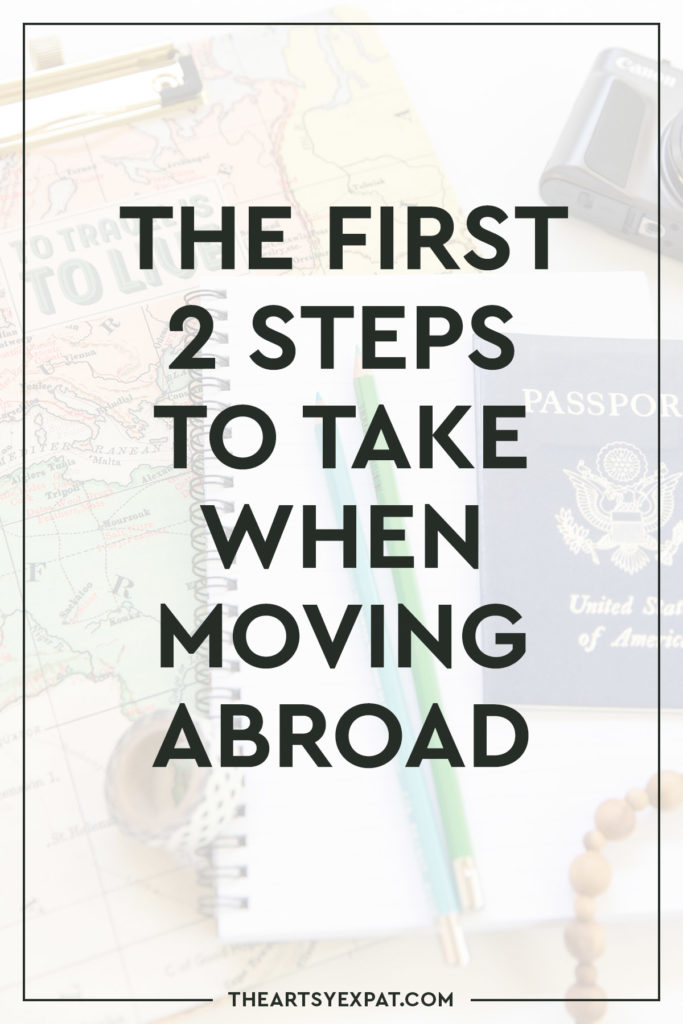How to Decide Where to Move Abroad as an American Expat
Post updated: Nov 8, 2024
Making the decision to move abroad isn’t something that happens overnight. Most of the time, it’s something you’ve considered for months or years – or in our case, almost a decade – and you slowly come around to the idea that it’s worth pursuing.
But then once you finally do decide, there’s a million little decisions you have to make. Things like: what stuff do you keep, can you move your pets, how do you get rid of everything you’re not taking with you, are there good schools for your kids, how will you support yourself and your family, and where exactly are you moving.
It’s those last two items I want to talk about today because choosing a location & finding a job really are THE deciding factors and will affect where and how you move to Europe (or wherever else in the world you want to head). Because it’s not as easy as spinning a globe and choosing the first spot your finger lands on, although wouldn’t that be nice!
The truth is there’s loads of legal red tape and some places aren’t very open to the idea of non-citizens living and working in their country.
This was something Jeff and I learned first-hand when we made the decision in October 2020 to seriously pursue becoming expats living in Ireland. We learned rather quickly that not all European countries had the same process for expats and that some were going to be tougher (or nearly impossible) to move to given our work situation.
Jeff is a video game designer which means he’s part of the tech industry. Being in tech is great for American expats as there are lots of overseas jobs to be found in countries looking to expand more into technology. But his job is also extremely specialized and not every country is a hub for video game companies, so that narrowed our search down to just a few countries that had regular job opportunities in his field: France, Germany, Ireland, and Spain.

Playing cards: One of our favorite pastimes when traveling together.
To further complicate things, I work for myself as an artist and online educator and there were only a handful of European countries that offered some form of self-employment or freelance work visas when we moved in 2021.
Here’s a list of the countries that have some sort of freelance visa option for artists (up to date as of Nov 8, 2024):
Self-Employed/Freelance Visas:
- Germany
- Spain
- Portugal
- Czech Republic
- Italy
- France
- Belgium
- Netherlands
- Norway
- Finland
Digital Nomad Visas:
- Estonia
- Spain
- Portugal
- Croatia
- Cyprus
- Greece
- Hungary
- Latvia
- Malta
- Romania
Now you might notice that Ireland is not on the list above and wonder how I’m actually going to be able to work when we move there? Well, the short answer is it’s complicated and the longer answer is something I hope to share on its own blog post once we’ve arrived in Dublin and have everything legally sorted out.
And if you’re considering your own move abroad for the long-term, here’s the two-step process you need to go through first BEFORE you dive into all the other details about international moving.
Step 1: Make a List of Countries You’d Want to Live In
This is obviously the fun part because you get to daydream about life in other countries. Ask yourself things like:
-
- Where have you always wanted to go?
- Is there any place you’ve already visited and fell in love with?
- Are there any cultures you’re fascinated by?
Then from your daydreaming, write down at least 5-10 countries that sound appealing to you and move on to step 2.
SAVE ME FOR LATER – PIN IT!


Step 2: Where Can You Work
It doesn’t do you any good to choose a country to move to if you can’t work there, so the next step is to research the work visas each country on your list offers. Many countries offer different work visas depending on the type of industry you work in – some have more advantages than others.
But there could also be jobs in certain sectors that expats won’t be able to receive a work visa for.
For example, hotel & hospitality jobs aren’t available to expats looking to move to Ireland. So think about your current job/s or any jobs you’d consider or are qualified for and make sure there’s actually a path to you receiving a job (whether through an employer or self-employed).
Once you’ve done a fair amount of research – I’m not gonna lie, this part of the process does take a while and can be frustrating at times – review your list of countries and cross any off the list that don’t currently offer a path to employment.
One little exception to this rule is if you’re ready to retire.
Many European countries offer visa options that allow you to live in the country as long as you can self-sustain your lifestyle (like the stamp 0 in Ireland). But obviously, that’s not a reality for most of us – either by choice or need – we plan to work when we move abroad.
My guess is that once you go through step 2, you’ll have a shorter list of probably 2-5 countries still on your list. Your next step is to research more about life in each country to further narrow down your choices OR start applying for overseas jobs in those countries.
We chose the latter option and Jeff started applying for jobs in every country on our list. It took about 6 months and lots of interviews with many companies before he landed his current job that’ll bring us to Dublin, Ireland. And it’s taking us another 6+ months to relocate as the COVID pandemic and Brexit have considerably slowed processing times for multiple steps in this process for us.
But we’re nearly there! In less than two months, we’ll be moving to Ireland, starting our new life as expats abroad.
Woot woot Shannon! This is incredibly exciting and I sure can appreciate the stressful part, too! Good for you guys in taking the leap. Gary and I are toying with the idea of living abroad as we get closer to retirement. I really appreciate your tips and will be following your journey. GOOD LUCK with everything and may it be as wonderful as you hope!!